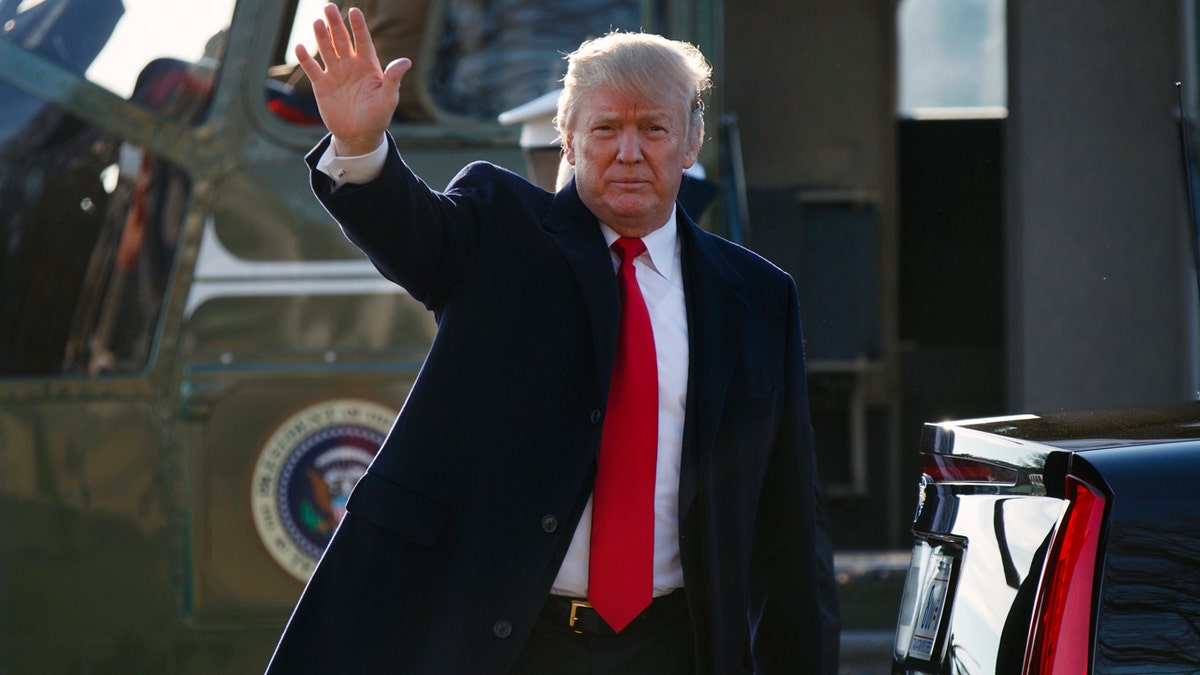
FILE -- Dec. 21, 2017: President Trump steps off Marine One after landing at Walter Reed National Military Medical Center in Bethesda, Md. (AP Photo/Evan Vucci)
They felt their voices didn’t matter. They felt overpowered, overshadowed and overwhelmed by powerful people. They knew they were being treated badly and were disrespected, but they were quiet for a long time. They are the disenfranchised who found strength in numbers, finally spoke out and were at long last heard this year.
I'm talking about two distinct groups with something powerful in common. One group is women in the workplace. The other is Donald Trump supporters. This year their voices finally mattered.
We learned that women working in Hollywood and in the news media, in particular, had to deal with alleged sexual misconduct by men who thought they could get away with it. According to the women, this misconduct ranged all the way from crude comments, to disgusting behavior, to sexual harassment, to sexual assault.
The cries of these brave women for equality, their insistence that they were being treated as less-than, had not always been received sympathetically. Thankfully, that changes this year. No woman should have to put up with sexual misconduct.
Learning how these women have been reportedly treated by the most powerful men in their industries made all of us stop, listen and cheer for them to get justice. We realize now that women in show business and in the news business have been working in an environment where the culture can be not only unjust, but dangerous – all the while painted over with a political message of women’s empowerment that is hypocrisy.
President Trump’s most ardent supporters have had a similar history of feeling that they have been treated as less-than, while powerful elites on both sides of the political aisle have bragged about their empathy for regular folks. Working-class Americans have long known how the wealthy and powerful actually view them, and they have long known that elitism contributes to injustice.
Each group – harassed women and disrespected working-class Americans – received a megaphone this year. It was good for America. The #MeToo crowd benefited from the loudspeaker that is the media (both traditional and social). Working-class Trump supporters benefited from the incredible megaphone of the president of the United States.
Both groups had distinct moments this year when they knew they’d finally been heard.
For the women of Hollywood, Harvey Weinstein’s downfall – especially his expulsion from the Academy of Motion Picture Arts and Sciences – must have delivered the joy that only comes from justice. And prominent men in TV news, in public radio, on news websites and in newspapers lost their jobs after women stepped forward to accuse them of sexual misconduct.
The forced resignation of Sen. Al Franken, D-Minn., – formerly a powerful figure in the entertainment industry who preached equality while treating women like objects – was another moment that must have been deeply satisfying to the women who have endured a misogynist culture for years.
For those whose passion elected Donald Trump, the most poignant moment of 2017 may have been his inaugural address, where he declared that the “American carnage” of poverty, “rusted-out factories,” a failed education system, and “crime and gangs and drugs” would stop “right here” and “right now.”
Finally, someone had candidly acknowledged that there is agony in America, that the elite and working classes are living separate and unequal lives, and that those who have been treated as “other” or invisible have been heard and will be heard.
The difference that stands between these two groups is that the women in Hollywood, in the news media and in other workplaces (including Congress) are now widely heard and believed, while working-class Trump voters remain a mystery to the elite class, which treats them with skepticism at best.
If the theme of 2017 was about finally being heard, let us hope that the theme for 2018 will be openness and understanding for all the voices of the disenfranchised.
